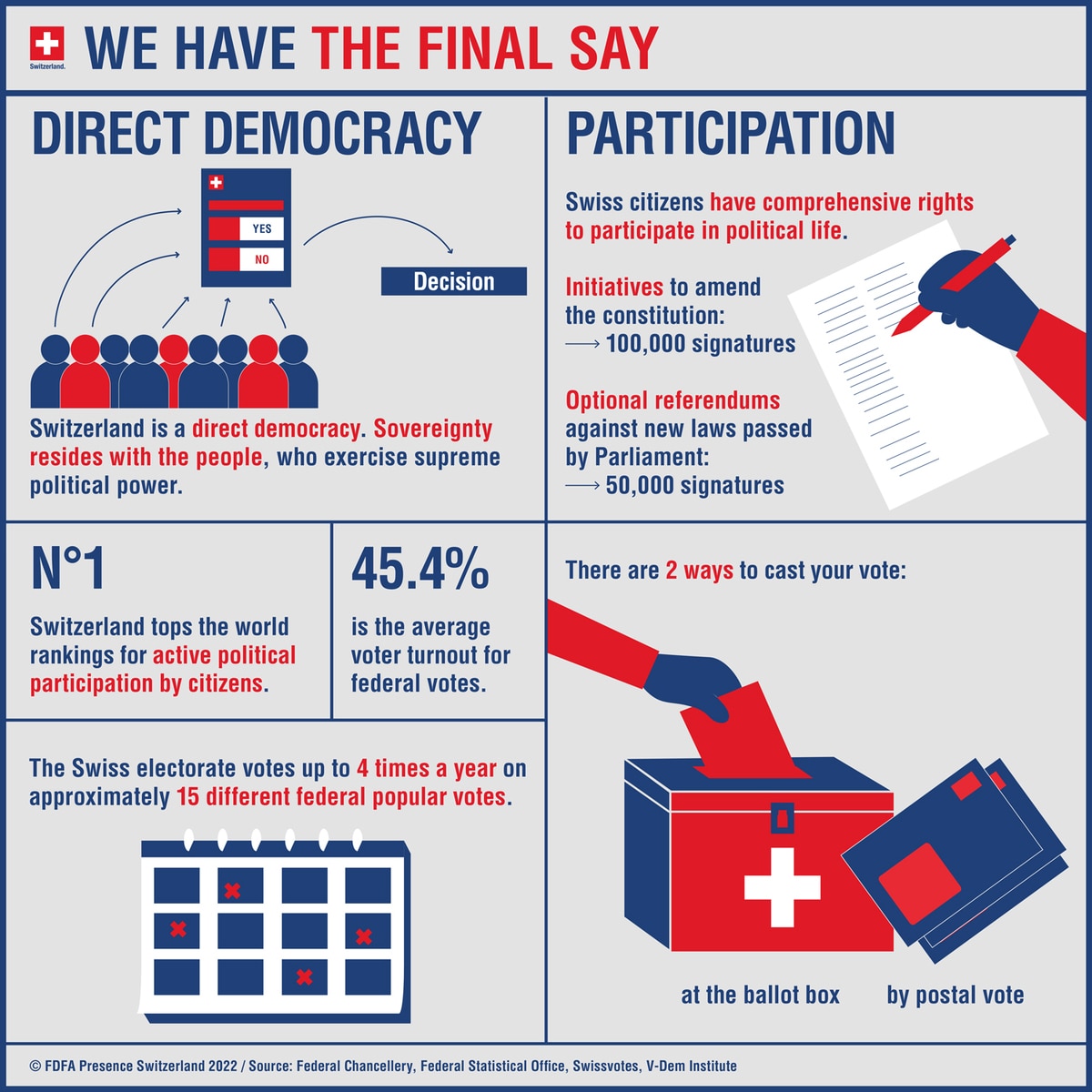Direct democracy is one of the special features of the Swiss political system. It allows the electorate to express their opinion on decisions taken by the Swiss Parliament and to propose amendments to the Federal Constitution. It is underpinned by two instruments: initiatives and referendums.
Direct Democracy
In Switzerland the people play a large part in the decision-making process at all political levels. All Swiss citizens aged 18 and over have the right to vote in elections and on specific issues. The Swiss electorate are called on approximately four times a year to vote on an average of fifteen such issues. In recent decades, voter turnout has been a little over 40% on average.
Citizens are also able to propose votes on specific issues themselves. This can be done via an initiative, an optional referendum, or a mandatory referendum. These three instruments form the core of direct democracy.
Popular initiative
The popular initiative allows citizens to propose an amendment or addition to the Constitution. It acts to drive or relaunch political debate on a specific issue. For such an initiative to come about, the signatures of 100,000 voters who support the proposal must be collected within 18 months. The authorities sometimes respond to an initiative with a direct counter-proposal in the hope that a majority of the people and the cantons support that instead.
Optional referendum
Federal acts and other enactments of the Federal Assembly are subject to optional referendums. These allow citizens to demand that approved bills are put to a nationwide vote. In order to bring about a national referendum, 50,000 valid signatures must be collected within 100 days of publication of the new legislation.
Mandatory referendum
All constitutional amendments approved by Parliament are subject to a mandatory referendum, i.e. they must be put to a nationwide popular vote. The electorate are also required to approve Swiss membership of specific international organisations.

